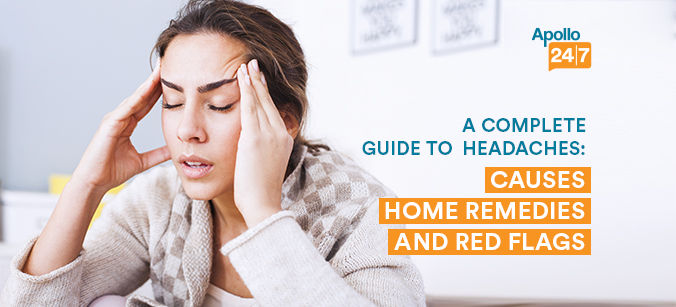General Health
Hypocalcaemia: What Happens When Your Calcium Levels Are Too Low?
4 min read
By Apollo 24|7, Published on - 08 August 2023
Share this article
0
0 like

Hypocalcaemia, or low levels of calcium in the blood, can have a significant impact on your overall health. Calcium plays a vital role in various bodily functions, including optimal muscle and nerve function, bone health, and blood clotting. Therefore, low levels of calcium in the body can lead to a range of symptoms and complications. While a low dietary intake of calcium can contribute to deficiency, it is not usually the primary cause. Let's explore the symptoms of hypocalcemia and the ways to deal with it.
Symptoms of Hypocalcaemia
Hypocalcaemia may have a variety of symptoms. Here are the most common ones:
1. Muscle Problems: A calcium deficiency can lead to muscle aches, cramps, spasms, and pain in the thighs and arms during movement.
2. Extreme Fatigue: Low calcium levels can cause extreme fatigue and may also lead to insomnia and brain fog.
3. Nail and Skin Symptoms: Dry skin, brittle nails, rough hair, alopecia (hair loss in patches), eczema (skin inflammation with dry or itchy patches), and psoriasis may be observed with a prolonged calcium deficiency.
4. Osteopenia and Osteoporosis: Calcium is essential for maintaining strong bones. When calcium levels are too low, the body may pull calcium from the bones, causing them to become weaker and more susceptible to fractures. Over time, this can lead to osteopenia (reduced bone mineral density) and ultimately osteoporosis, a condition characterized by thinning bones, pain, and posture problems.
5. Severe PMS: Low calcium levels have been linked to severe premenstrual syndrome (PMS). Studies have shown that calcium supplementation can improve mood and reduce fluid retention during the menstrual cycle.
6. Dental Problems: Calcium deficiency can affect dental health, leading to tooth decay, brittle teeth, irritated gums, weak tooth roots, and impaired tooth development in infants.
7. Depression: Some evidence suggests a potential link between calcium deficiency and mood disorders such as depression.
Treatment of Hypocalcemia
The treatment of hypocalcemia may involve:
1. Calcium Supplements
If your calcium levels are significantly low, your doctor may prescribe calcium supplements in the form of calcium carbonate or calcium citrate. In severe cases of hypocalcemia, intravenous calcium may be administered in a hospital setting to rapidly raise blood calcium levels.
2. Vitamin D Supplements
Vitamin D is crucial for calcium absorption in the intestines. If the cause of hypocalcemia is vitamin D deficiency, your doctor may recommend vitamin D3 tablets to help improve calcium absorption and levels.
It is vital to consult a doctor before taking supplements to determine the appropriate dosage for your specific needs. Taking too many calcium tablets can result in hypercalcaemia, which may lead to cardiovascular disease or kidney stones.
3. Treat Underlying Conditions
Treating the underlying cause of hypocalcemia is essential. For instance, if hypoparathyroidism (when parathyroid glands don't produce enough parathyroid hormone) is causing low calcium levels, the doctor may prescribe synthetic parathyroid hormone or other medications to manage the condition.
4. Dietary Changes
Including calcium-rich foods in your diet can help maintain proper calcium levels. Good dietary sources of calcium include dairy products, fortified plant-based milk, leafy greens, and almonds.
5. Monitoring and Follow-Up
Regular monitoring of blood calcium and vitamin D levels is essential to ensure the effectiveness of the treatment.
Test Calcium & Vitamin D Levels
Prevention of Hypocalcemia
To prevent hypocalcemia, it is crucial to increase your dietary intake of calcium-rich foods. Some food sources of calcium include:
- Dairy products like milk, cheese, and yoghurt
- Soybean
- Okra
- Sprouts
- Spinach
- Dry fruits like anjeer
- Soy-based products like tofu or soy-milk
However, if dietary adjustments are not leading to sufficient results, calcium supplements may be recommended by your doctor.
To Sum It Up
Hypocalcaemia can have a significant impact on your overall health. Recognizing the symptoms and seeking appropriate medical advice is crucial for effective management. If you suspect a calcium deficiency, it is recommended to consult with an orthopaedic doctor to preserve your bone health and prevent complications.
General Health
Consult Top Orthopaedicians
View AllLeave Comment
Recommended for you

General Health
Year End 2022: 6 Astonishing Developments In Medical Science You Must Know
The year 2022 saw a lot of discoveries and inventions in the field of medical science. From developing flu and Malaria vaccine to building an embryo with stem cells, researchers did it all. Read to know the 6 top scientific developments in 2022.

General Health
A Complete Guide to Headaches: Causes, Home Remedies, and Red Flags
While "home remedy for headache" remains one of the most searched queries, what is interesting is that no two headaches are the same, and neither are their remedies. Read on as this blog highlights the top 10 different causes, remedies and red flags of headaches.

General Health
Five Reasons That Will Make You Fall In Love With Dark Chocolates!
Eating dark chocolate is linked to multiple health benefits, including improved heart health, better cognitive function, reduced stress, increased workout performance and lower risk of type 2 diabetes.
Subscribe
Sign up for our free Health Library Daily Newsletter
Get doctor-approved health tips, news, and more.
Visual Stories

Plant-based Foods That Are a Great Source of Iron
Tap to continue exploring
Recommended for you

General Health
Year End 2022: 6 Astonishing Developments In Medical Science You Must Know
The year 2022 saw a lot of discoveries and inventions in the field of medical science. From developing flu and Malaria vaccine to building an embryo with stem cells, researchers did it all. Read to know the 6 top scientific developments in 2022.

General Health
A Complete Guide to Headaches: Causes, Home Remedies, and Red Flags
While "home remedy for headache" remains one of the most searched queries, what is interesting is that no two headaches are the same, and neither are their remedies. Read on as this blog highlights the top 10 different causes, remedies and red flags of headaches.

General Health
Five Reasons That Will Make You Fall In Love With Dark Chocolates!
Eating dark chocolate is linked to multiple health benefits, including improved heart health, better cognitive function, reduced stress, increased workout performance and lower risk of type 2 diabetes.